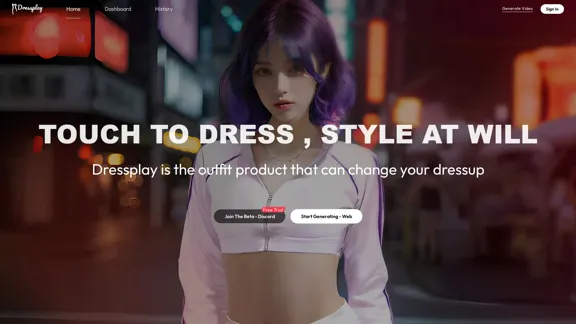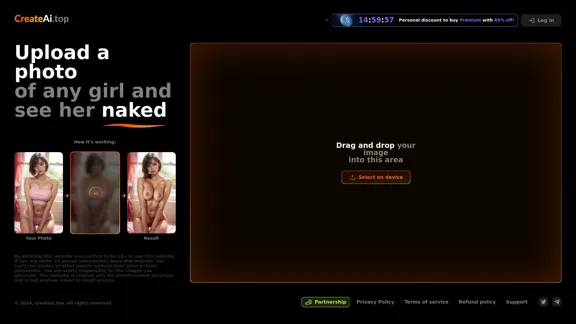Journey ArtPrompt With Midjourney ist eine Browser-Erweiterung, die die Bilderzeugung durch KI-gesteuerte Prompts revolutioniert. Dieses innovative Tool ermöglicht es Benutzern, personalisierte Bilder zu erstellen und verwandelt ihr Browsing-Erlebnis mit künstlerischem Flair. Es bietet ein übersichtliches neues Tab-Layout, eine umfangreiche Midjourney-Hintergrundbibliothek und praktische Funktionen wie Schnelllinks und integrierte Websuche.
Reise KunstPrompt mit Midjourney
Neue Hintergründe mit Midjourney auf neuen Tabs
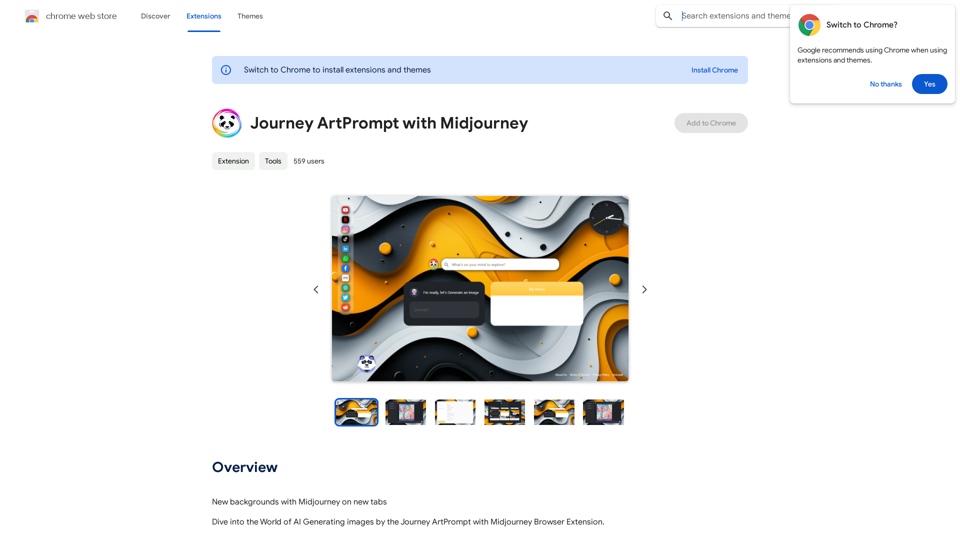
Einführung
Funktion
Künstlerisches Neues Tab-Layout
Erleben Sie ein verfeinertes und aufgeräumtes neues Tab-Design, das sich auf Einfachheit und Ästhetik konzentriert, um Ihre Browsing-Umgebung zu verbessern.
Prompt-basierte Bilderzeugung
Erstellen Sie mühelos fesselnde Bilder durch Eingabe einfacher Prompts und fügen Sie Ihrem Web-Erlebnis eine künstlerische Dimension hinzu.
Umfangreiche Midjourney-Hintergrundbibliothek
Greifen Sie auf eine vielfältige Sammlung einzigartiger Midjourney-Hintergrundbilder zu, die jeweils ein unverwechselbares visuelles Erlebnis bieten, um Ihren Browser zu personalisieren.
Schnelllinks für einfache Navigation
Navigieren Sie schnell zu Ihren Lieblings-Online-Zielen mit einer kuratierten Auswahl wichtiger Links und verbessern Sie die Browsing-Effizienz.
Integrierte Microsoft Bing-Suche
Suchen Sie nahtlos nach Themen, Bildern, Videos und Nachrichten direkt von Ihrer Startseite aus, unterstützt von Microsoft Bing.
Schutz der Benutzerprivatsphäre
Priorisiert die Privatsphäre der Benutzer, indem keine persönlichen Informationen für Trainingsdaten verwendet werden und eine vollständige Kontolöschung auf Anfrage ermöglicht wird.
Häufig gestellte Fragen
Wie installiere ich Journey ArtPrompt With Midjourney?
Klicken Sie auf die Schaltfläche "Zu Chrome hinzufügen" und akzeptieren Sie die Nutzungsbedingungen und Datenschutzrichtlinien. Die Erweiterung aktualisiert Ihre Sucheinstellungen, um Microsoft Bing für neue Tab-Suchen zu verwenden.
Welche Abonnementoptionen gibt es für Journey ArtPrompt With Midjourney?
Ein Abonnement wird empfohlen, wenn Sie mehr als 20 kostenlose GPT-4o-Gespräche pro Tag benötigen. Für Vielnutzer stehen günstige Abonnementpläne zur Verfügung.
Wie kann ich die Erweiterung deinstallieren?
Um zu deinstallieren, gehen Sie zu den Chrome-Einstellungen, klicken Sie auf "Erweiterungen" und wählen Sie "Entfernen" neben Journey ArtPrompt With Midjourney.
Wie kann ich Bedenken melden oder den Entwickler kontaktieren?
Verwenden Sie die Schaltfläche "Bedenken melden" am unteren Rand der Seite für Probleme. Um den Entwickler direkt zu kontaktieren, senden Sie eine E-Mail an [email protected].
Verwandte Webseiten
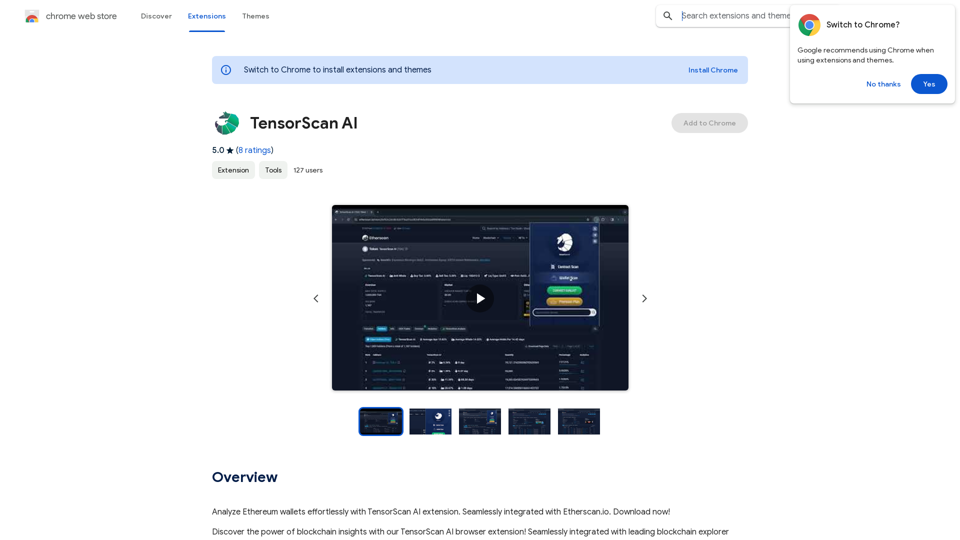
Analysieren Sie Ethereum-Wallets mühelos mit der TensorScan AI Erweiterung. Nahtlos in Etherscan.io integriert. Jetzt herunterladen!
193.90 M
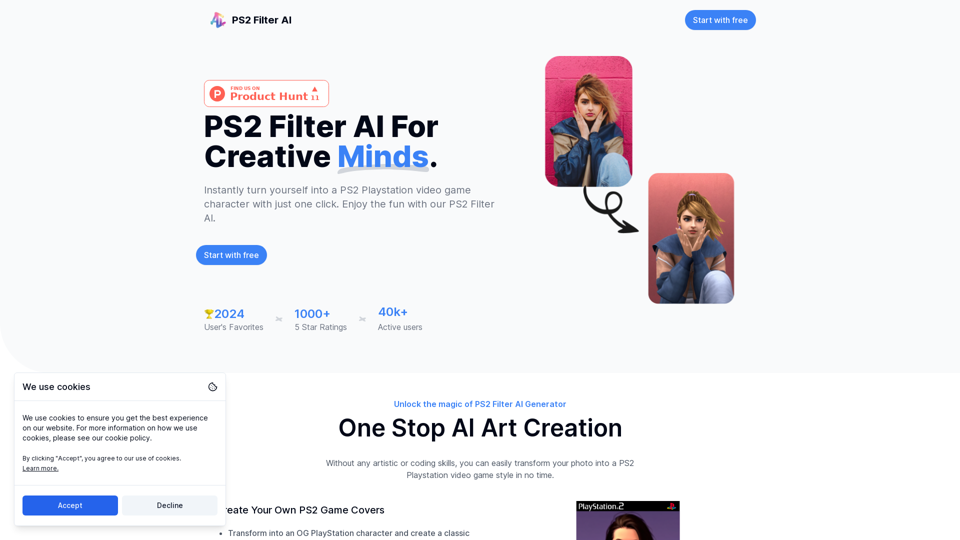
Entdecke die Magie der KI mit unserem PS2-Filter und verwandele deine Fotos sofort in klassische PS2-Videospielcharaktere. Erlebe diesen Retro-Stil mit einem modernen Touch – lade einfach dein Foto hoch und sieh die Transformation mit einem Klick! Probiere es kostenlos auf ps2filterai.net aus.
0
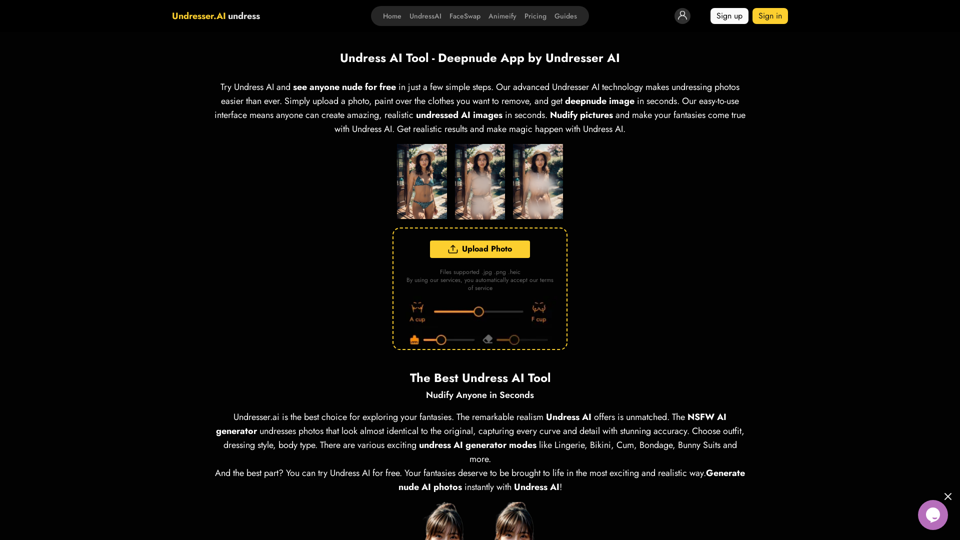
Undress AI App - Erstelle Deepnude Bilder kostenlos | Undresser.AI - Entkleide
Undress AI App - Erstelle Deepnude Bilder kostenlos | Undresser.AI - EntkleideVorstellung von Undresser.AI, der ultimativen KI-gestützten App zum Erstellen atemberaubender Nacktaufnahmen in Sekundenschnelle. Mit unserer fortschrittlichen Deepnude-KI-Technologie können Sie jedes Bild mühelos in ein realistisches Nacktfoto verwandeln. Erleben Sie das Beste an Foto-Entkleiden mit Undresser.AI, wo KI auf Kunst trifft.
31.13 K
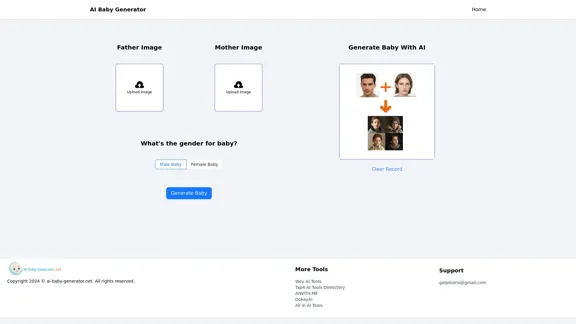
AI-Babygenerator | Erstellen Sie Fotos Ihres zukünftigen Babys mit KI
AI-Babygenerator | Erstellen Sie Fotos Ihres zukünftigen Babys mit KIErstellen Sie Babyfotos mit unserem KI-Baby-Generator, um zu sehen, wie Ihr zukünftiges Baby aussehen könnte.
0
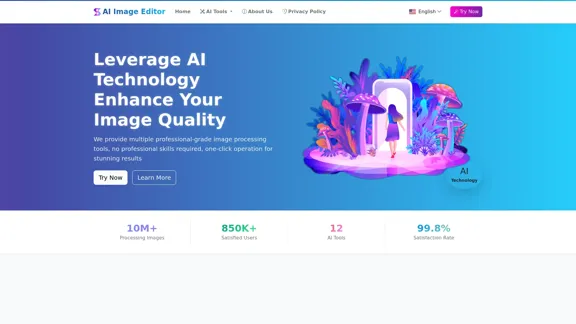
AI-Bildbearbeiter │ Kostenlose All-in-One Foto-AI-Tools
AI-Bildbearbeiter │ Kostenlose All-in-One Foto-AI-ToolsAIImageEditor.me bietet 12 kostenlose KI-Bildwerkzeuge an – von der Bildverbesserung und Wasserzeichenentfernung bis hin zu Stilübertragung und Hintergrundbearbeitung – um die Bildbearbeitung zu vereinfachen.
21.99 K
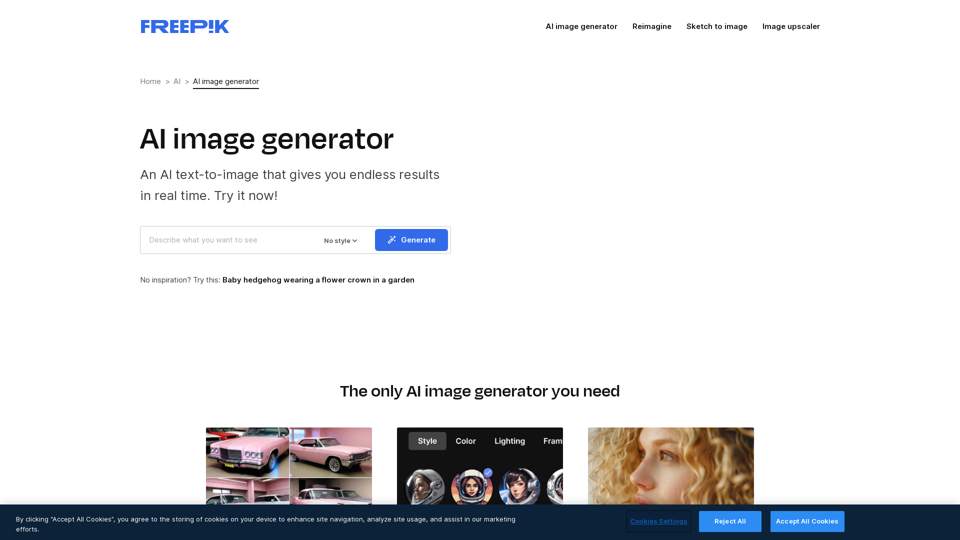
KI-Bildgenerator - Kostenlose Text-zu-Bild-Konvertierung | Freepik
KI-Bildgenerator - Kostenlose Text-zu-Bild-Konvertierung | FreepikEchtzeit-AI-Tool für Text-zu-Bild: verwandeln Sie Ihre Ideen in Bilder und Illustrationen. Beispiele für Anweisungen sind enthalten!
98.96 M
